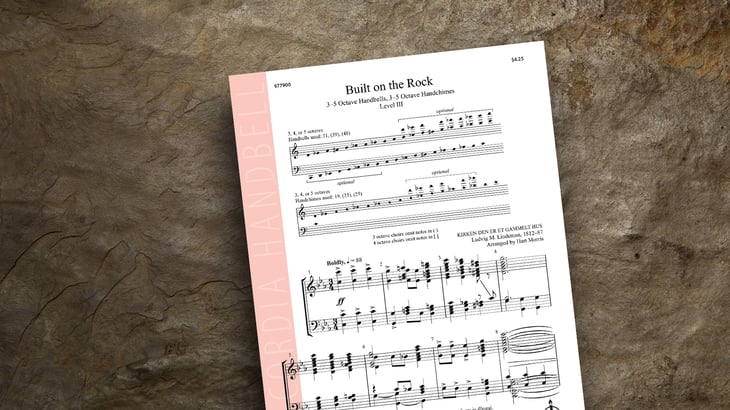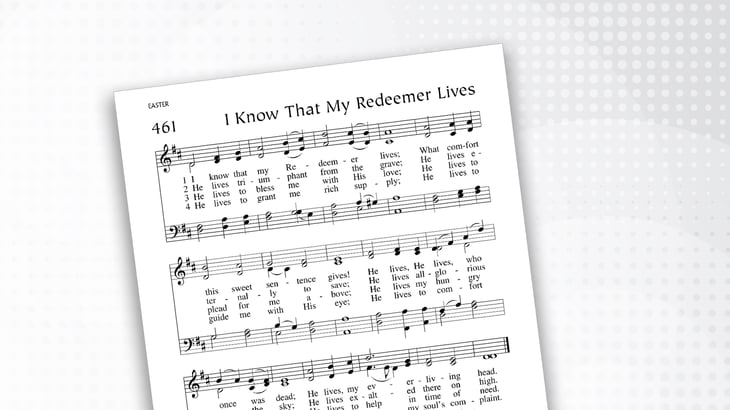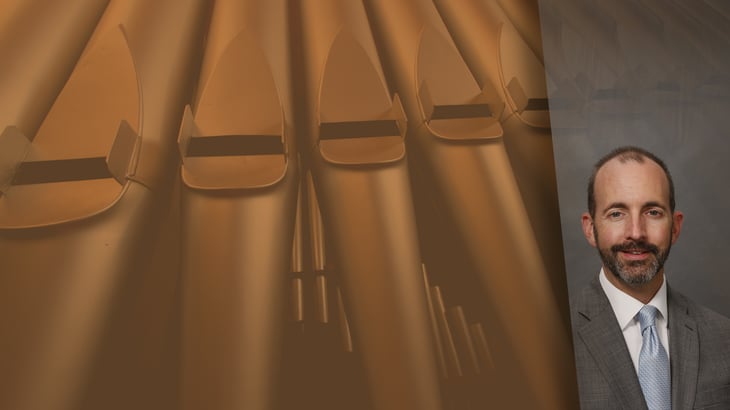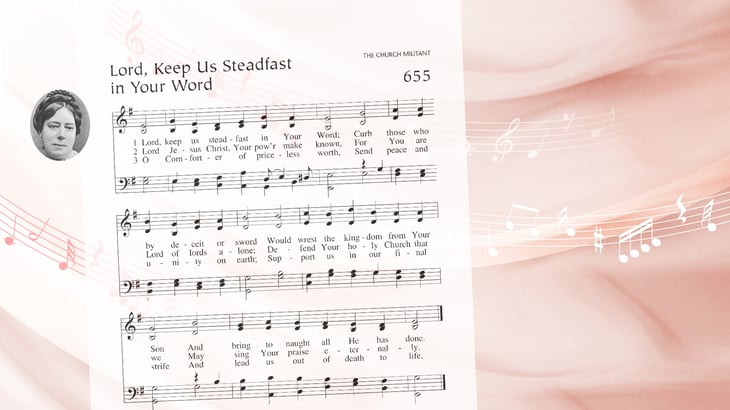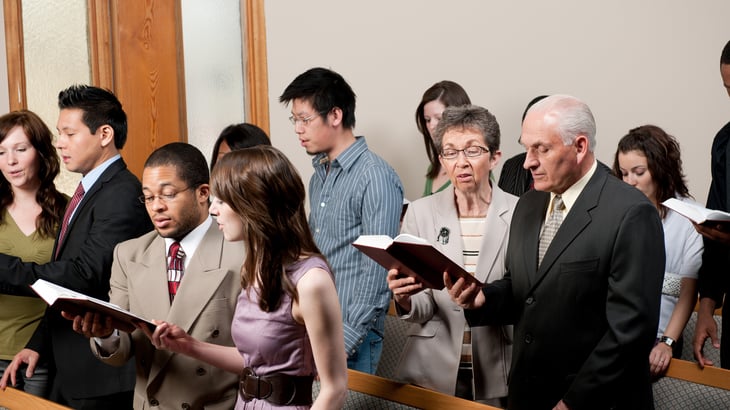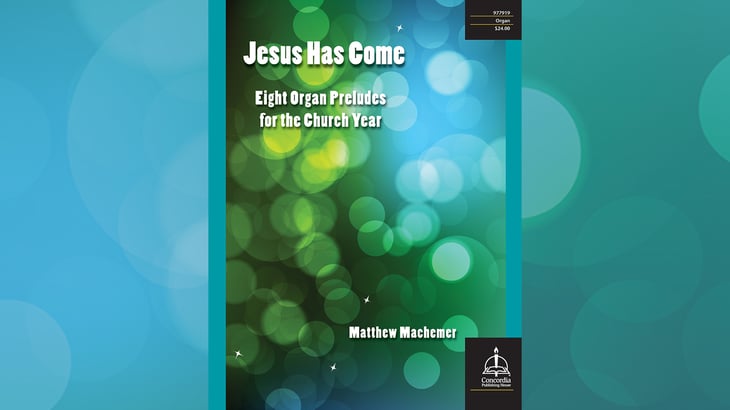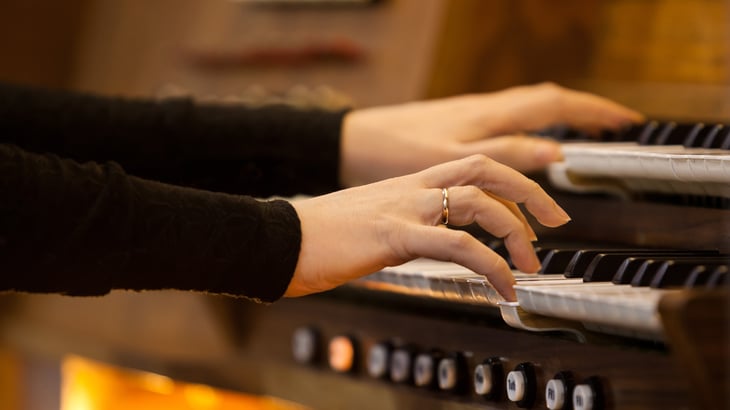Music of the Month: Built on the Rock
Handbells are a beautiful addition to any Sunday worship service. “Built on the Rock” by Hart Morris gives your handbell and handchime group a challenging yet stunning piece for your congregation to listen to, with a triumphant conclusion of praise to the Savior.
Why Christians Should Make Music with Joy
This past weekend, I discovered a delightful new album that mixed Mozart horn concertos with mambo music featuring the French horn. The promotional video for the album showed a colorfully arrayed orchestra playing a mambo on a Havana street, the musicians dancing to their own music.
How 6 Popular Lutheran Service Book Hymn Tunes Got Their Names
Think about your favorite hymn in Lutheran Service Book. If you have a hymnal handy, take a minute to look it up. In the bottom right corner of the page, there’s probably a name listed in all capital letters—this is the hymn tune. Some are simple, like CAROL or GREENSLEEVES. Others are phrases, often in Latin or German.
Composer of the Month: Kevin Hildebrand
Kevin Hildebrand is Kantor at Concordia Theological Seminary in Fort Wayne, Indiana (CTSFW), and at St. Paul’s Evangelical Lutheran Church in Fort Wayne. His work involves training future pastors at CTSFW in practice and understanding of Lutheran church music and hymnody as well as forming a confessional, congregational, and musical identity at St. Paul’s.
Hildebrand attended Concordia University Chicago for undergraduate study, and afterward, earned master’s degrees in music from the University of Michigan and theology from CTSFW. In Lutheran Service Book, Hildebrand composed the tune “Lord of Life” (552, “O Christ, Who Shared Our Mortal Life”) and wrote harmonizations for three more hymns in LSB.
Teaching the Faith with Catechism Hymns
Music is a wonderfully underrated teaching tool. Think back to your childhood. Can you remember singing your ABCs? What about the catchy tunes from Schoolhouse Rock!, which covered history, math, science, and grammar? It’s not surprising that many educators use music to help their students learn and memorize curriculum.
Martin Luther was extremely familiar with the concept of music as a teaching tool. In fact, Luther wrote six catechism hymns, one for each of the Six Chief Parts of the Small Catechism. He knew that by putting the words of Christian doctrine next to a hymn tune, it would help the people to remember the words and their meaning more easily.
Why Christians Need Pop Music
We need good music.
We need Palestrina and Bach and Mozart and Beethoven and Mendelssohn and so many others. We need good Renaissance and Baroque and Classical and Romantic music. We need good cantatas and passions and chorales and chorale preludes. We need our modern church composers, for what would I do Sunday after Sunday without my trusty Hymn Prelude Library? We need beautiful, classical, and sacred music that uplifts the soul and draws us to heaven, or refreshes the spirit, or teaches our children what truth, beauty, and goodness sound like.
But just as much as all of that, we need good modern secular pop music.
Hymn Translator of the Month: Catherine Winkworth
Catherine Winkworth (1827-1878) was born the youngest of four daughters in an Anglican manufacturing family. She was never married, never formally educated, and died suddenly when she was only 50, yet her work translating hymns from German to English is indispensable in the Lutheran tradition of hymn singing today.
Reflection on 'There is a Balm in Gilead'
The past several months in this country have made many weary, worn out, and tired. From fighting a pandemic to fighting racial injustice, there have been difficulties in neighborhoods from coast to coast. During these times of struggle and injustice, the meaningful message of hymns continues to provide comfort and point people to Christ.
In today's post, read Dr. Joseph Herl's commentary on one well-known African American Spiritual hymn, “There is a Balm in Gilead” (LSB 749), from Lutheran Service Book: Companion to the Hymns.
Music of the Month: Jesus Has Come—Eight Organ Preludes for the Church Year
This collection contains an array of settings that will appeal to organists of all ability levels and sensibilities. The melodies are set in alluring, recognizable ways and are suitable for preludes, voluntaries, and postludes. Matthew Machemer uses a variety of styles: Baroque writing with clean, contrapuntal lines; dramatic settings with lush harmonies; and elegant, understated treatment, useful throughout the Church Year.
What Songs Are Stuck in Your Head?
I was leaning into the fridge and looking for a snack when the blasphemous lyrics popped into my head from out of nowhere.
It was a line from a song by a band my husband and I had recently seen in concert. Their songs are relatively clean, any crude or uncouth language typically warranted by the dark life circumstances they detail, things like broken homes and hurt people. This band sings about these things as a way to cope with a sinful world, not in order to praise them; however, it is not a Christian band.
